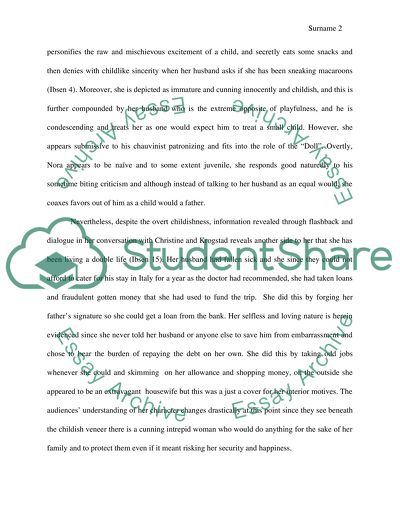Cite this document
(“Character Analysis of Nora from A Doll's House Essay”, n.d.)
Retrieved from https://studentshare.org/literature/1491847-character-analysis-of-nora-from-a-doll-s-house
Retrieved from https://studentshare.org/literature/1491847-character-analysis-of-nora-from-a-doll-s-house
(Character Analysis of Nora from A Doll'S House Essay)
https://studentshare.org/literature/1491847-character-analysis-of-nora-from-a-doll-s-house.
https://studentshare.org/literature/1491847-character-analysis-of-nora-from-a-doll-s-house.
“Character Analysis of Nora from A Doll'S House Essay”, n.d. https://studentshare.org/literature/1491847-character-analysis-of-nora-from-a-doll-s-house.


